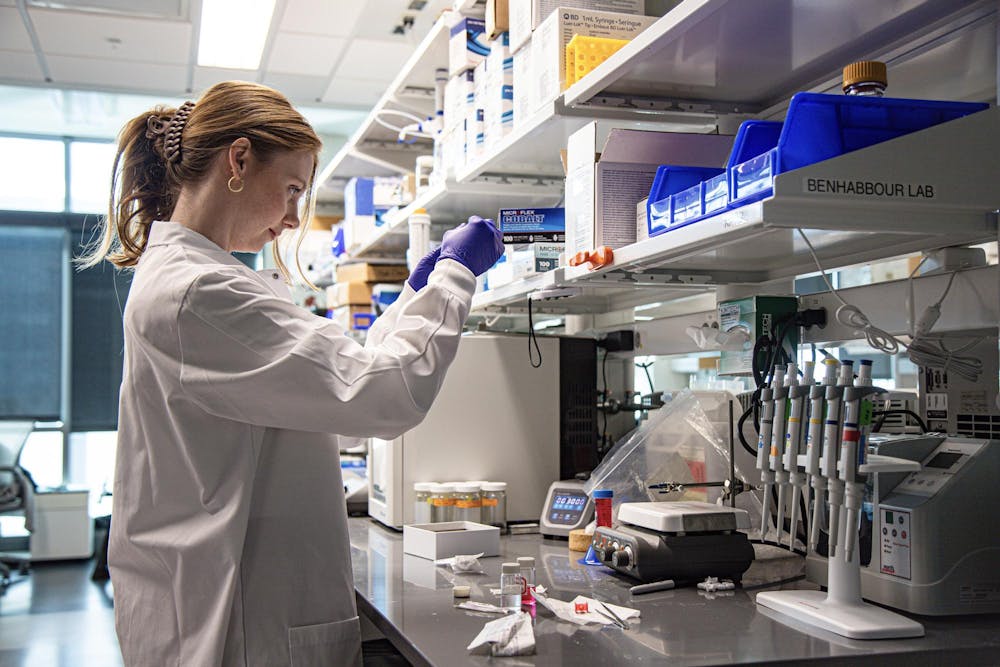Researchers at the Joint Department of Biomedical Engineering at UNC and North Carolina State University recently received a $3.15 million grant from the National Cancer Institute.
The funded research is led by Rahima Benhabbour, principal investigator and associate professor in the BME department, as well as two co-principal investigators, Paul Dayton and Shawn Hingtgen. Together, the team works to develop cell therapy approaches to treat Glioblastoma multiforme.

GBM is a brain tumor that can grow quickly and cause effects including headaches, seizures and muscle fatigue. Since there is a growing need for new treatment options for the disease, the Benhabbour Research Laboratory is using neural stem cells, or NSCs, developed by the Hingtgen Lab.
Benhabbour said the research team plans to use hydrogels formulated with NSCs to increase their ability to combat the cancer. The Dayton Lab’s ultrasound technology, which Phil Durham, one of the lead researches in the laboratory, said impacts blood vessels to allow NSCs into the brain, also helps fight the tumors.
“The limitation of the neural stem cells is their fast clearance and inability to persist long enough to home and kill all residual tumor cells post GBM resection," Benhabbour said. "We have demonstrated that when NSCs are delivered in our hydrogel technology, we can significantly extend their persistence in the tumor resection cavity and increase the median survival in a mouse GBM model by greater than 50 percent."
Durham said that the grant allows the team to conduct research about improving the longevity of effective neural stem cells in treating patients with the condition.

"We've been working on this idea for some time, and we're really excited to have received the award to continue and expand our research,” Durham said.



